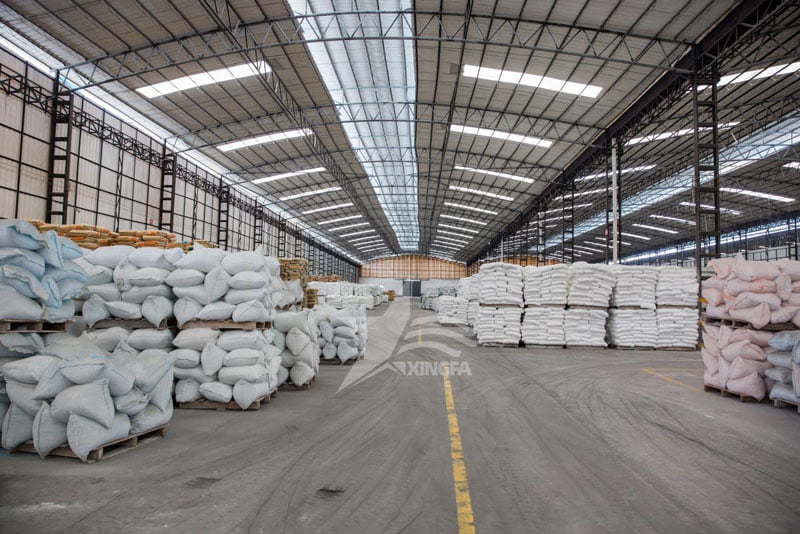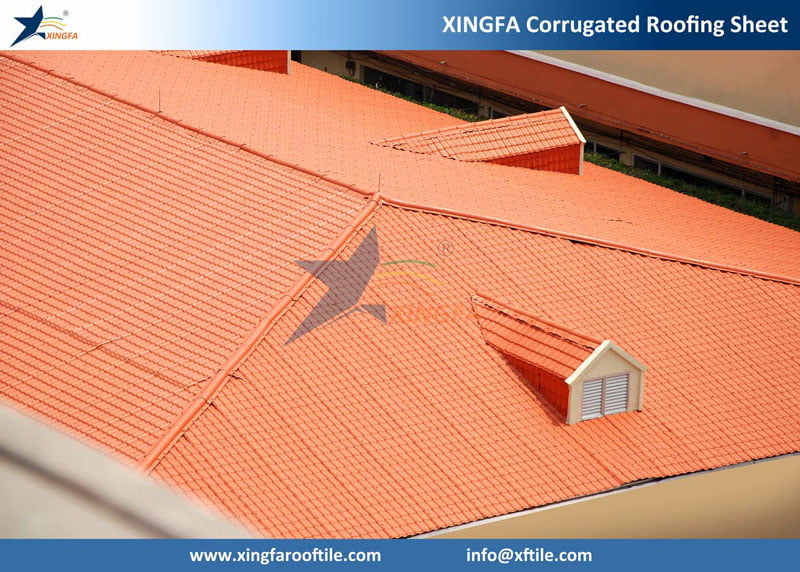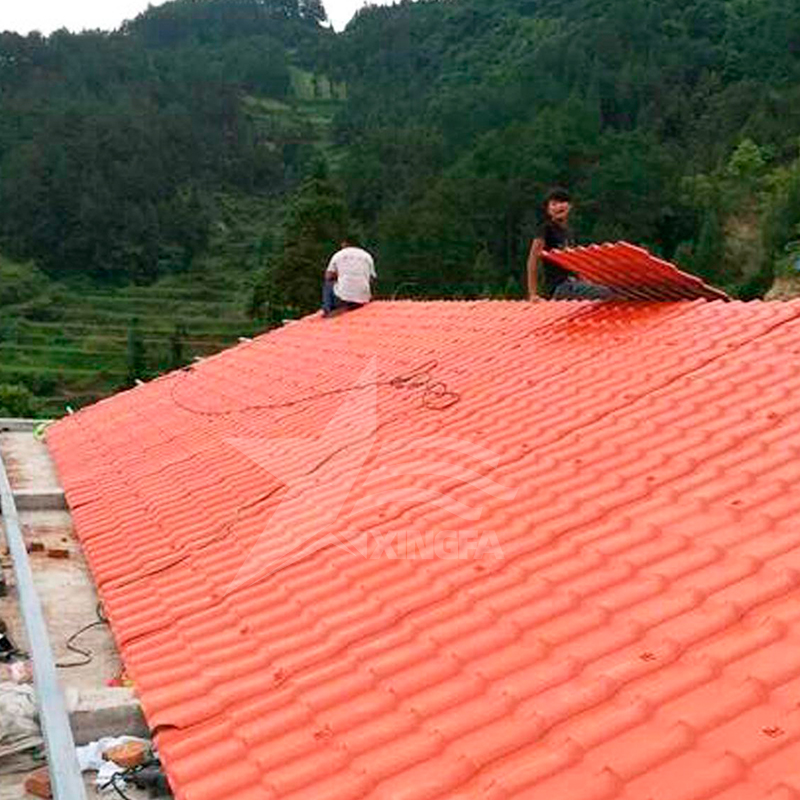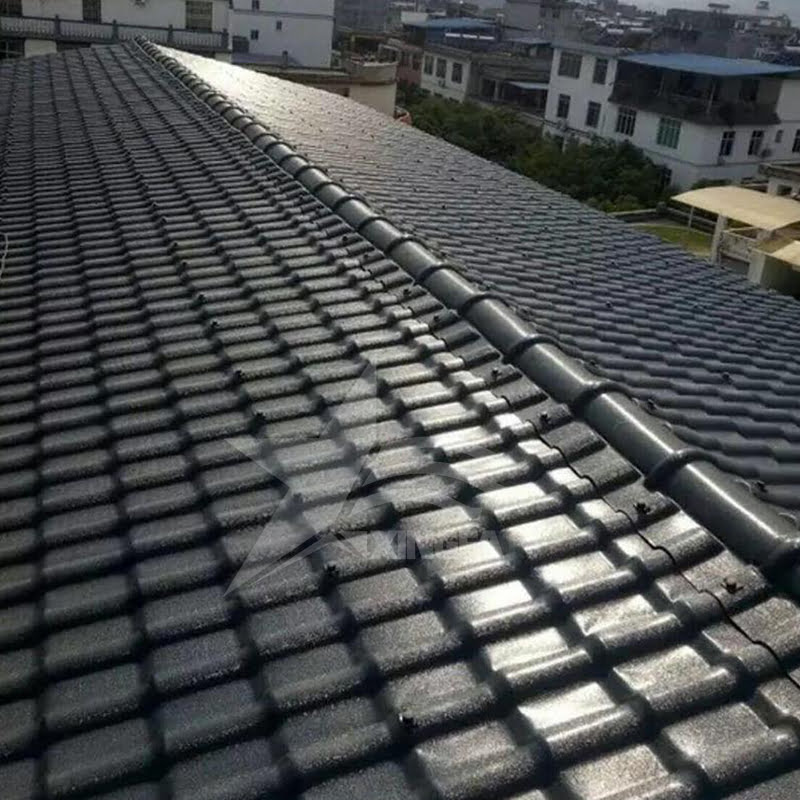Synthetic resin tile, as a common building material, its manufacturing materials and components play a vital role in its performance and quality.
The main raw materials of synthetic resin tiles mainly come from petrochemical products, including ethylene, propylene and other petroleum derivatives. These raw materials are made into synthetic resin through chemical reactions and become the main component of resin tiles. In addition, the manufacturing process of resin tiles also requires the use of chemicals such as benzene, formaldehyde, and urea as auxiliary raw materials to ensure the quality and performance of the resin.

Resin tiles are mainly composed of synthetic resin and other auxiliary materials. Synthetic resins can be divided into two categories: thermoplastic resins and thermosetting resins. Common thermoplastic resins include polyethylene, polypropylene, etc., while thermosetting resins include phenolic resin, epoxy resin, etc. These resins have different performance characteristics and are suitable for different engineering needs.

In addition to synthetic resin tiles, other auxiliary materials are added to resin tiles to improve their performance and durability. These additives may include fiberglass, fillers, flame retardants, etc. They can enhance the strength, weather resistance and fire resistance of resin tiles, making them more suitable for use as building roofing materials.

To sum up, the main raw materials of synthetic resin tiles are petrochemical products, including ethylene, propylene, etc.; while resin tiles are mainly composed of synthetic resin and other auxiliary materials. Synthetic resin can be divided into thermoplastic resin and thermosetting resin according to different properties. , while auxiliary materials can improve the performance and durability of resin tiles.










